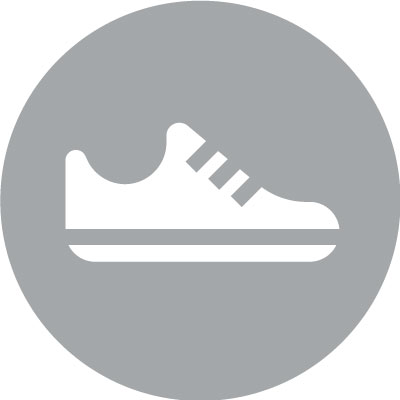How to save a PDF
If you would like to save the page you’re viewing as a PDF document, here are the steps:
- Click icon with 3 stacked dots
/
or
lines to the right of the URL bar at the top of your browser
- Select the “Print” option
- A pop up window like this one should appear, ensure the Destination field is set to “Save as PDF” (this may be a dropdown or “Change” button)
- Click “Save,” then select the location and name for the file on your computer
 Physical wellness includes sleep, nutrition, and exercise.
Physical wellness includes sleep, nutrition, and exercise.
Employees who improve their physical health through diet, exercise, and adequate sleep can reduce the health risks associated with work in a public safety and emergency services field such as obesity, high blood pressure, high blood sugar, excess body fat, and abnormal cholesterol.
Strategies for physical wellness also often support an effective stress management and self-care plan.
Components of good physical health work together to support the whole. The following information can be shared with your department through expanded education, or as part of one-on-one discussions addressing wellness.
 Sleep
Sleep
Proper sleep maintenance
Healthy sleep maintenance is critical, especially in occupations with unique stressors including shift work. Sleep is essential to maintain and repair the body, and sleep, or lack thereof, has important effects on all functions of the mind and body. Those who work in the public safety and emergency services field who work second or third shift are working against the natural rhythms of the body and the circadian clock.
Watch a recent webinar on this topic:
Some negative effects of sleep deprivation are decreased cognitive processes, problem-solving, concentration, and reasoning, which interferes with forming sound judgments and increases irritability. Sleep deprivation (sleeping only five to six hours a night) has been shown to increase risk for heart disease and high blood pressure, and to increase disorientation when navigating, resulting in slower reaction times. Driving while drowsy can also be dangerous. One report noted more than 40% of police officers have fallen asleep while driving, and 25% of those reported this happening more than once a month.
Effects of sleep loss
- Stress
- Irritability and memory issues
- Reduced productivity and lack of creativity
- Less effective decision making under stress and other cognitive problems
- Impaired driving and increase in accidents
- Weakened immunity
- Weight gain
- Blood pressure concerns, heart disease, and metabolic effects
- Insulin and blood sugar levels on par with pre-diabetic and diabetic patients
Thus, wellness programming should encourage employees to follow proper sleep hygiene, including getting seven to nine hours of sleep every 24 hours, limiting caffeine intake close to sleep time, and minimizing screen time before bed.
Healthy habits to assist in sleep onset include exercise, which can make it easier to fall asleep, and practicing a calming and relaxing routine one hour before going to sleep to decrease stress. Calming activities such as reading or taking a relaxing bath or shower can help, and this is the crucial time to avoid electronic screens that can increase restlessness.
Simply stated, sleep is a priority. Sleep deprivation causes numerous health concerns that can lead to disastrous results. There is a strong link between poor sleep and stress accumulation.
How to make sleep a priority:
- Commit to a minimum of seven hours of sleep every 24 hours.
- Optimize sleep environment.
- Dark—use blackout shades, eye masks, etc.
- Cold—cooling body temperature will allow for better sleep.
- Quiet—silence phones, consider the use of white noise, etc.
- Limit caffeine and alcohol intake.
- Use blue light wisely and limit screen time (phones, tablets, computers and TV) ahead of going to sleep.
- Limit napping.
- Create a bedtime routine and stick to your schedule on days off of work.
- Address sleep disorders with your physician.
Nutrition
Recognizing the link between nutrition and health and wellness can reap substantial benefits, including maximizing job performance, individual health, and community safety. Choosing healthy food in times of stress can lead to clearer thinking, increased energy, and better overall health.
On-the-go options
Some practical tips to help with nutrition to give employees, or to have available within your department, include having easy, healthy meal options ready to go, assembling meals in advance to make it easier to eat healthy foods with an unpredictable and shifting schedule, and keeping healthy snacks in the department and in squads or fire engines. When time constraints prevent advanced meal preparation, departments can post a list of favorite, healthy meal options at local restaurants and grocery stores that employees can rely on during their shifts. Finding a good balance of diet and exercise is not about a temporary diet, but about an overall healthy lifestyle.
Water
Water deficiency is the most common nutritional deficiency in the American population. Water is essential to myriad functions including: delivering oxygen to cells, transporting nutrients, cushioning joints, regulating body temperature, and empowering healing processes. Most significantly, proper hydration prevents a number of health issues such as blood pressure concerns, irregular heartbeat, heat stroke, kidney stones, etc.
Recommended daily consumption (in ounces) is equivalent to your body weight divided by 2, e.g., a 150-pound person should consume 75 ounces of water daily.
If coffee, other caffeinated beverages, soda, fruit juices, and alcohol are consumed, one needs to offset that diuretic by drinking one and a half times the amount of water.
Signs and symptoms of dehydration may include: fatigue, anxiety, irritability, cravings, cramps, and headaches.
 Exercise
Exercise
Given the importance of maximizing physical health, there are a number of programs agencies can implement regarding physical health options. This can expand beyond exercise programs, and include medical screenings for employees, nutritional education, and/or smoking cessation programs.
As an incentive to maintaining optimal physical health, several agencies have begun to allow employees time to exercise during their shifts. Furthermore, exploring a broader range of exercise options outside of traditional police and fire training programs, such as CrossFit and martial arts, may lead to more physically fit employees, reducing stress and improving health.
Importantly, the type and style of exercise programming is not a one-size-fits-all decision, since individuals differ regarding what motivates them and best suits their needs and interests.



 Exercise
Exercise